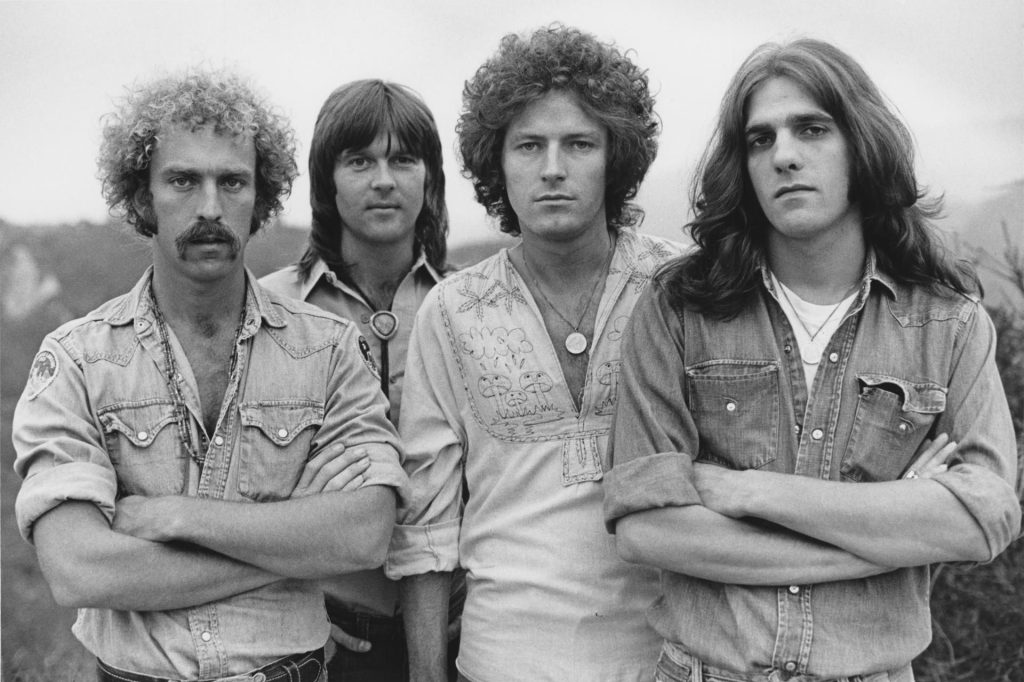
Lyin’ Eyes: A Tale of Heartbreak and Deception
In the realm of classic rock, few bands have achieved the enduring popularity and critical acclaim of the Eagles. Their music, characterized by its harmonious vocals, intricate guitar work, and poignant songwriting, has resonated with listeners for decades, transcending generations and genres. Among their extensive discography, “Lyin’ Eyes” stands out as a masterpiece, a ballad that encapsulates the complexities of love, betrayal, and the lingering ache of heartbreak.
Released in 1975 as part of the Eagles’ album One of These Nights, “Lyin’ Eyes” quickly captivated audiences, reaching number two on the Billboard Hot 100 chart and becoming a staple of their live performances. The song’s enduring appeal lies in its masterful blend of musical elements and lyrical depth, weaving a tapestry of emotions that resonates deeply with listeners.
Glenn Frey, the band’s co-lead vocalist, takes center stage on “Lyin’ Eyes,” imbuing his vocals with a world-weary weariness that perfectly captures the song’s narrative. Frey’s voice, laced with both vulnerability and resignation, paints a vivid portrait of a man grappling with the fallout of a love gone awry.
The song’s opening lines, “Late in the evening when the lights are low / And the moon is high above the world below / I sit alone and think of you / And all the things that we used to do”, establish a melancholic mood that permeates the entire piece. Frey’s voice, accompanied by the gentle strumming of an acoustic guitar, sets the stage for a tale of love and loss, regret and disillusionment.
As the narrative unfolds, the protagonist confronts his lover’s “lyin’ eyes”, a metaphor for her deception and betrayal. The lyrics paint a picture of a woman who has skillfully masked her true intentions, leading her partner down a path of emotional turmoil. The repeated phrase “You can’t hide your lyin’ eyes” serves as a powerful refrain, driving home the song’s central theme of deception and the inability to conceal one’s true nature.
Despite the heartbreak and betrayal he has endured, the protagonist still harbors feelings for his deceitful lover. The line “I still love you though I know it’s wrong” lays bare the raw emotions that underpin the song, revealing the protagonist’s vulnerability and the lingering power of his affection.
The bridge of “Lyin’ Eyes” offers a brief respite from the song’s somber tone, as the protagonist finds solace in the memories of happier times. However, this glimmer of hope is quickly extinguished as he returns to the harsh reality of his present situation.
The song’s conclusion leaves the listener with a sense of unresolved heartache. The protagonist remains trapped in a cycle of love and betrayal, unable to escape the lingering pain of his shattered relationship. The final lines, “There ain’t no way to hide your lyin’ eyes / Honey, you can’t hide your lyin’ eyes”, echo through the listener’s mind, reinforcing the song’s central theme of deception and the inescapability of one’s true nature.
“Lyin’ Eyes” stands as a testament to the Eagles’ songwriting prowess, their ability to craft songs that are both musically captivating and emotionally resonant. The song’s exploration of love, betrayal, and heartbreak has touched the hearts of listeners for decades, solidifying its place as a timeless classic in the realm of rock music.